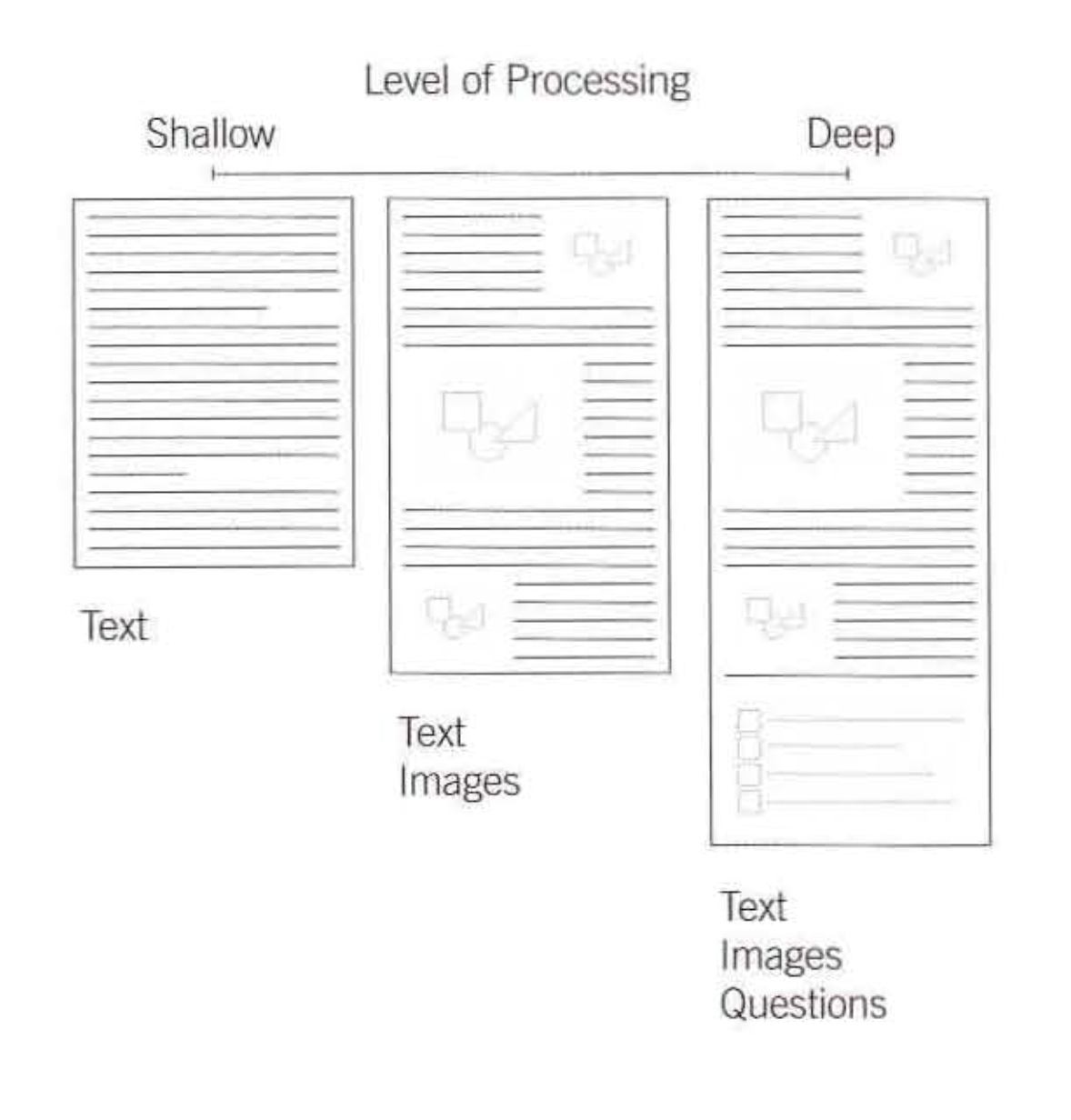A phenomenon of memory in which information that is analysed deeply is better recalled than information that is analysed superficially.
Thinking hard about information improves the likelihood that the information will be recalled at a later time.
Lets say two variants of a task. One is to locate and circle some keywords in a list. The other is to locate, circle and define the keywords. The keywords in the second task will be remembered the most.
This phenomenon of memory results from the two ways in which information is processed, known as maintenance rehearsal and elaborative rehearsal.
Maintenance rehearsal simply repeats the same kind of analysis that has already been carried out. Ex: repeating a phone number to help remember it. No additional analysis is performed on the phone number.
Elaborative rehearsal involves a deeper, more meaningful analysis of the information. For example, people engage in elaborative rehearsal when they read a text passage and then have to answer questions about the meaning of the passage.
The key determining factors as to how deeply information is processed are
- the distinctiveness of the information,
- the relevance of the information, and
- the degree to which the information is elaborated(how much thought is required to interpret and understand the information).
Use this in design where recall and retention of information is important.
